Iran’s foreign ministry lays bare rampant US, UK human rights violations in annual reports
By Maryam Qarehgozlou
Iran's foreign ministry on Sunday released annual reports that shed light on human rights violations committed by the United States and the United Kingdom, both at home and abroad.
The exhaustive reports bring to light systematic and institutionalized human rights infringements by the governments in Washington and London, debunking the myth of "human rights" in those countries.
The British government, for example, has been found involved in numerous human rights violations, both inside the country and in other countries, as highlighted in the report.
These transgressions include inhumane immigration policies, persistent racial discrimination, violence against women and children, police brutality targeting minors, inadequate support for human trafficking victims, neglect of prisoners’ rights, ineffective anti-drug strategies, and unregulated arms exports to the Israeli regime amid the ongoing genocidal war on Gaza.
Furthermore, the UK has vetoed multiple UN Security Council resolutions calling for a ceasefire in the Gaza Strip amid the genocide, making it directly complicit in the daily massacres of Palestinians.
According to the report, the US faces issues such as unregulated access to firearms resulting in mass shootings, widespread poverty, violations of prisoners’ rights, infringement of women’s and children’s rights, racial discrimination, and suppression of freedom of expression and peaceful assembly.
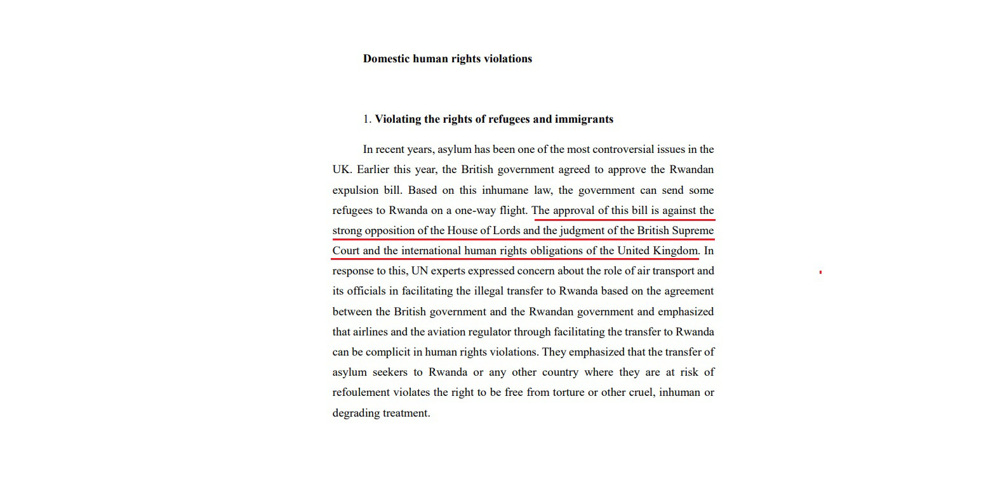
Abroad, the US continues to contribute to flagrant human rights violations by imposing unilateral sanctions and engaging in arms trade, particularly with the Israeli regime, as exposed by the report.
Unwavering support for the Zionist regime’s genocidal war crimes in Gaza, where over 45,000 Palestinians have been killed, highlights the US’ complicity in global rights abuses, the report notes.
Here is a summary of the comprehensive reports, spanning over 100 pages, documenting gross human rights violations committed by the United States and the United Kingdom.
Refugee and immigrant rights violations in UK
The British government has approved the controversial Rwandan expulsion bill, allowing the British authorities to send refugees and asylum-seekers on a one-way flight to Rwanda.
This inhumane legislation was passed despite strong opposition from the House of Lords, a ruling against it by the British Supreme Court, and the UK’s international human rights obligations.
The new British government led by the Labour Party has not rejected the idea of returning migrants and asylum seekers to a safe third country, albeit not Rwanda.
The newly appointed British Home Secretary, James Cleverly, has emphasized that establishing a new border security command remains a top priority.
“The transfer of migrants to Rwanda is against the UK’s international obligations. Commodification of asylum seekers, acts of violence and humiliating behavior are contrary to human dignity and are denounced,” the foreign ministry warned in its report.
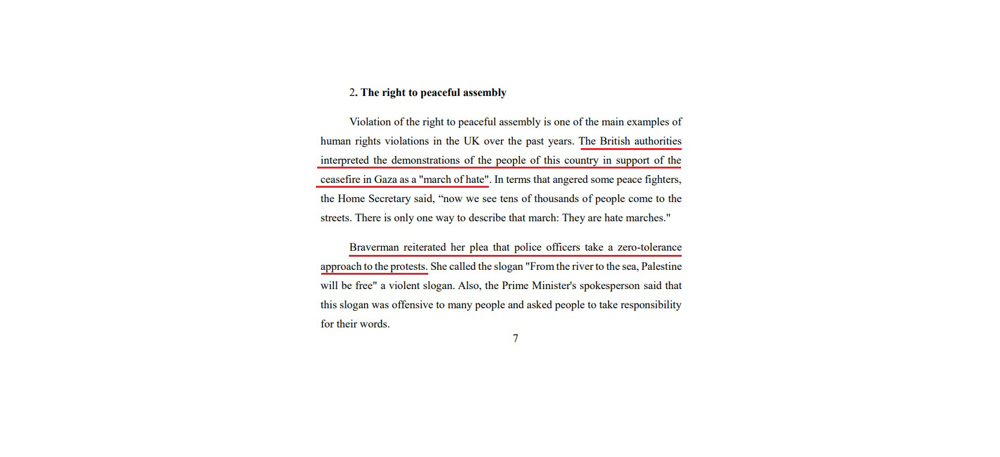
The ruling Labour Party also aims to expedite migrant departures by seeking new agreements with countries such as France. The French maritime police, funded by the UK, employ “pullbacks” to prevent migrants from reaching British shores.
Reports from the Observer, Lighthouse, Le Monde, and Spiegel corroborate this information.
Footage reveals French police using tactics such as creating large waves, boarding refugee boats with pepper spray, and drilling holes in the vessels.
The UK has provided France with hundreds of millions of pounds, including funding for a French police patrol boat under the Sandhurst Treaty, to support these efforts.
UK’s suppression of peaceful assembly rights
Following the devastating Israeli war on Gaza, which completed 438 days on Tuesday, widespread peaceful protests across England have called for a ceasefire.
The UK Home Secretary and other government ministers attempted to ban these demonstrations, signaling plans to expand police powers over peaceful protests and assemblies.
Some UK visitors with temporary visas faced backlash for participating in pro-Palestinian rallies.
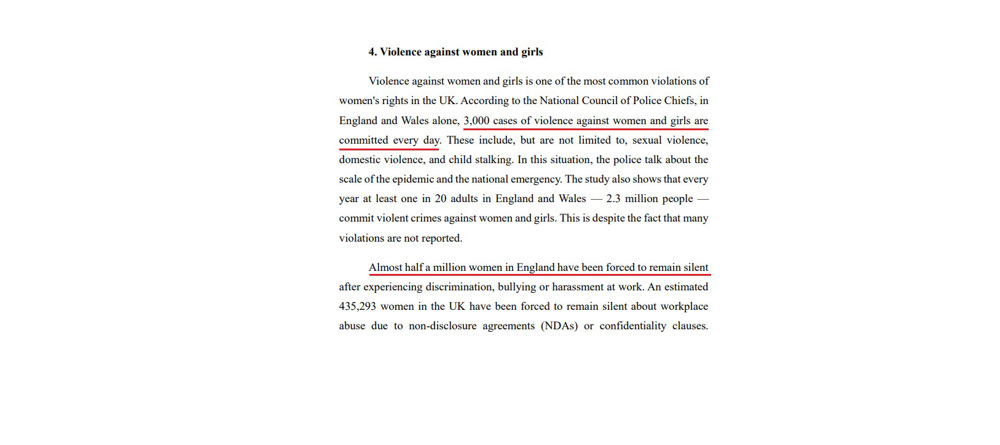
The government’s current approach seeks to silence pro-Palestinian voices by labeling them as anti-Semitic, the Iranian foreign ministry report states.
The report highlights the case of Dana Abu Qamar, whose visa was revoked by the Home Secretary, citing him as a threat to national security following his pro-Palestinian statements.
As the leader of the Friends of Palestine Association at the University of Manchester, Abu Qamar’s case exemplifies the British government’s ruthless crackdown on Palestinian supporters.
Similarly, Egyptian television host Mo’taz Matar had his UK visa canceled for participation in pro-Palestinian demonstrations in London and support for the Palestinian resistance movement Hamas.
“There is a possibility that the visas of at least half of the other foreign nationals will be revoked. The Home Office easily revokes the student, visitor, or work visa of foreign nationals under the pretext of a threat to national security,” the ministry report noted.
Violence, discriminations against women in UK
The report further references multiple investigations into instances of rampant violence and discrimination against women in the United Kingdom.
In England and Wales, 3,000 daily cases of violence against women and girls, including sexual violence, domestic abuse, and child stalking, have led police to declare a national emergency.
A study by the National Council of Police Chiefs revealed that 2.3 million people commit violent crimes against women and girls annually, with many incidents unreported.
Non-disclosure agreements (NDAs) have silenced nearly half a million women experiencing workplace abuse. These legal contracts, used by UK employers, prohibit sharing information on sexual harassment, discrimination, and other offenses.
Official statistics reveal that over 100 femicide-motivated murders were committed by men in 2023. Since 2009, an average of 140 women have been killed by men annually, equating to one woman murdered every 5 days, although some reports indicate a femicide occurs every 3 days.
Black women, in particular, suffer disproportionately, according to the report.
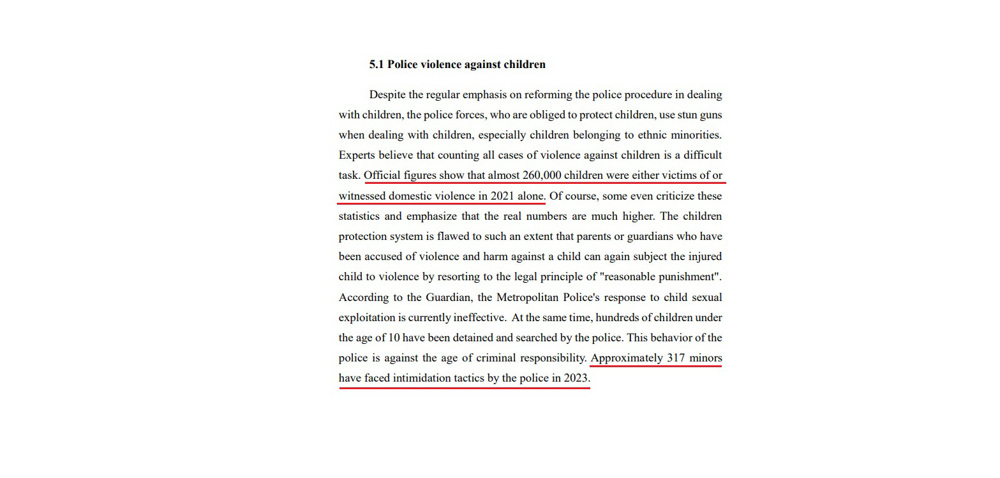
Approximately 25 percent of British women report sexual violence and harassment annually, with 71 percent experiencing it in their lifetime.
The number increases to 86 percent for women aged 18-24. From 2022 to 2023, 194,683 sexual crime cases were registered, with 70,330 involving sexual assault against women and girls.
A survey by the British Muslim Women’s Network revealed that 75 percent of Muslim women in the UK fear for their safety.
Despite progress, a significant number of women and girls in England still face inequality in education, employment, and protection against various forms of violence.
Among major financial firms in the UK, women earn an average of 28.8% less than men, according to salary data across 21 surveyed companies. The gender pay gap has widened from 53.2 percent in 2022 to 54 percent in 2023.
Violence against children in UK
The Iranian foreign ministry’s report also examines instances of violence against children in the United Kingdom, as part of its comprehensive investigation into human rights violations in the country.
Statistics from Statista demonstrate a significant increase in violent crimes against children and teenagers in the UK, rising from 4,109 cases in 2002 to 32,961 in 2023.
Additionally, police reports indicate that around 87,000 cases of sexual violence against children were registered from 2022 to 2023, including rape, abuse, and exploitation.
A 2023 report stated that 16% of British children experienced violence in 12 months, with 68 percent of teenage victims (360,000 aged 13-17 in England and Wales) suffering from sexual violence.
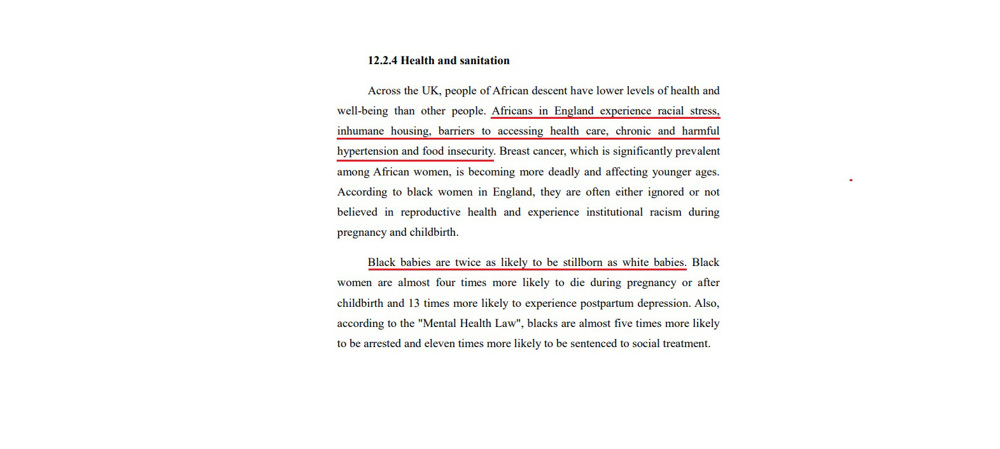
Inadequate protection for victims of human trafficking
The UK’s recent legal amendments, such as changes to the Nationality and Borders Act and the Modern Slavery Act, have reduced protections for potential victims of human trafficking, according to the UN Human Rights Committee.
These changes impede the identification of victims and their access to justice, particularly for children and women, the foreign ministry report warned.
Rights violations in UK prisons
UK prisons face persistent challenges with rising rape and sexual assault cases, the report noted.
Public scrutiny intensifies when violations involve staff, as seen in a recent video of an affair between a prison guard and inmate at HMP Wandsworth Prison in London.
Record numbers of prison officers were arrested in 2023 for illicit relations with prisoners, with nearly a thousand rape cases and over 2,336 sexual assault cases reported from 2010 to 2023. Experts suggest actual numbers may be higher.
Indeterminate sentences, or IPP (Imprisonment for Public Protection) sentences, were issued in England and Wales from 2005 to 2012 for high-risk offenders.
However, this led to extended imprisonment for minor offenders even after completing regular sentences. Despite abolition, about 2,800 individuals remain in prison and 200 in hospitals serving IPP sentences.
UK’s failed anti-drug policies
The UK’s drug crisis has led to a rise in drug-related deaths in the United Kingdom, signaling a growing opioid crisis, according to the report.
Failed anti-narcotics policies have resulted in an alarming weekly death toll of 6 Britons from drug use.
Despite years of punitive policies, England faces a severe drug crisis, with drug users 13 times more likely to die than in other European countries.
The crisis has also led to a surge in chronic diseases, such as hepatitis C.
Experts urge the government to explore innovative solutions, including the implementation of drug rooms, to combat the alarming increase in fatal overdoses, which have doubled over the past decade.
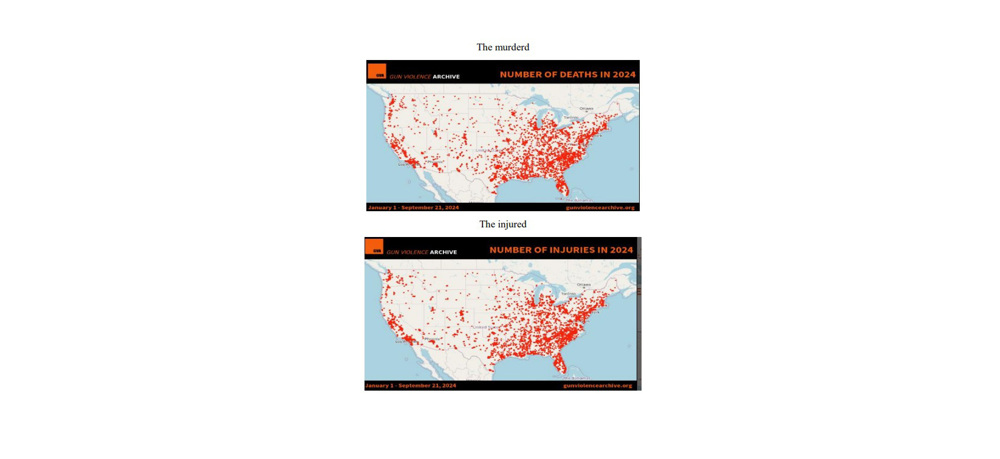
UK’s racial discrimination
Racial discrimination remains a significant human rights concern in the UK, as underscored by the Iranian foreign ministry report.
The UN Committee on the Elimination of Racial Discrimination has expressed concern over ongoing hate crimes, hate speech, and xenophobia, particularly targeting ethnic and religious minorities, immigrants, refugees, and asylum seekers.
Romani communities face high levels of racial hatred and inequalities. Media perpetuates racial prejudice, while Gypsies experience harsher treatment from the police, have limited access to health services, and encounter discrimination in education.
Research indicates that more people express negative feelings towards Gypsies compared to other marginalized groups.
Alarmingly, 62 percent of Gypsies have experienced racist aggression, with 47 percent of Roma people reporting racial assault.
The government has been ineffective in addressing racial incitement and inflammatory language against Gypsies.
Systemic racism, inequality, and discriminatory practices persist for people of African descent in the UK, contributing to their alarming human rights situation.
“The lack of progress in implementing the findings of numerous investigations and reports on racial inequality and institutionalized racism in member states is a source of great frustration and concern,” the Iranian foreign ministry observed.
Civil society, academics, and lawyers highlight a widespread “moral panic” surrounding Africans in the UK, driven by exaggerated perceptions of threat.
This has resulted in undermining the dignity of Black people, with reported instances of abuse of power, harassment, and inhumane practices by authorities.
Mothers grieving their children’s deaths have encountered insensitive police behavior. Black men frequently report excessive force and invasive searches. The use of force against Africans is alarming, with an increasing number of deaths stemming from police actions.
Strip-searching disproportionately targets children of color in the UK. With 90 percent of the 7,852 searches being drug-related, Black children are 15 times more likely than white children to undergo these searches, despite nothing being found in over half the cases.
Black prisoners in England face extended periods of solitary confinement and mistreatment by prison staff, including deprivation of basic needs and access to legal proceedings.
Black children are overrepresented in prisons, often experiencing abuse, excessive restraints, and extended solitary confinement.
In general, Africans in the UK face numerous other challenges, including racial stress, inadequate housing, barriers to healthcare and employment, and food insecurity.
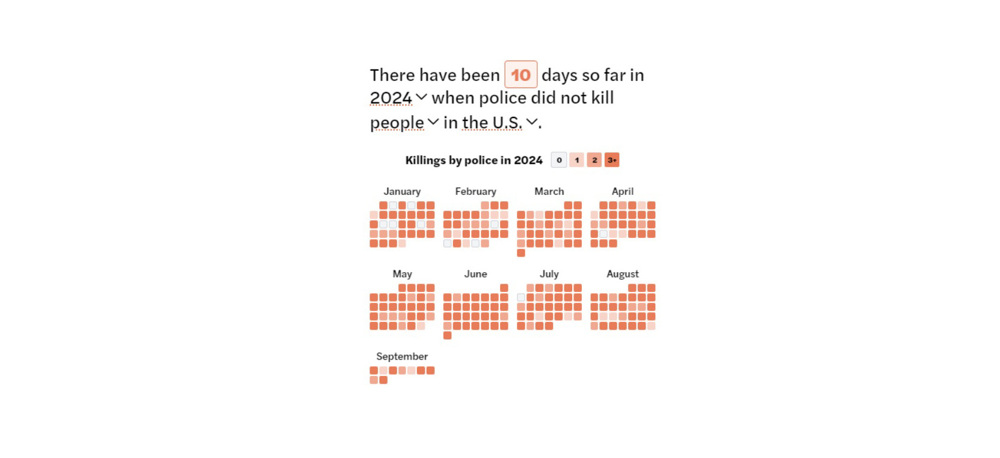
UK’s violation of international human rights
The report further sheds light on the UK’s transgressions against international human rights norms.
BAE Systems, a UK-based company, supplies components for the Israeli F-35 warplanes used in the recent Gaza bombings.
This, along with the UK’s weapon sales and suspension of UN agency for Palestinian refugees (UNRWA) aid, violates international laws, especially given the dire humanitarian situation in Gaza.
The UK has issued over 100 arms export licenses to the Israeli regime since October 2023, totaling 345 licenses and £574 million since 2008. Despite ongoing genocide in Gaza, no export license has been rejected or canceled.
The report additionally exposes the UK’s role in undermining international human rights standards through collaboration with political partners.
This is evidenced by their veto of Security Council resolutions for a Gaza ceasefire, abstention from votes on Palestine’s UN membership, opposition to the Commission of Inquiry on Occupied Palestinian Lands, voting against resolutions addressing racism and xenophobia, publicly backing ongoing Israeli war crimes in Gaza, conducting over 200 military flights over Gaza, and engaging in air strikes in Yemen’s Saada, Hodeidah, and Taiz provinces.
US gun laws jeopardize citizens’ right to life and security
The Iranian foreign ministry’s report on US human rights violations initially examines the implications of US gun laws and their connection to rampant human rights abuses in the country.
US gun laws endanger lives and compromise citizens’ right to life and security. Gun culture, deeply ingrained in American society, fuels this problem as gun violence becomes the leading cause of death for many under 19.
A recent report by the Special Rapporteur on Contemporary Forms of Racism, Xenophobia and Intolerance highlights the disproportionate impact on African American, Native, and Latin American communities.
Alarmingly, African-American children and adolescents are five times more likely to die from gun homicide than their white peers.
Mass shootings in America have also reached crisis levels, frequently occurring in schools and educational centers. The US experienced 388 mass shootings in the first eight months of 2024 alone, with 23 mass killings, according to the Archive of Armed Violence website.
“Growing insecurity in American society has led to a push for stricter gun control by US citizens; however, the country’s political and legal framework has not only failed to impose further restrictions but has also loosened existing ones, exacerbating the issue,” the Iranian Foreign Ministry report said.
“The reason for this is the significant influence of arms manufacturing companies and cartels in the American government structure. The priority of American statesmen is not human lives, but the profits from arms sales,” the report warned.
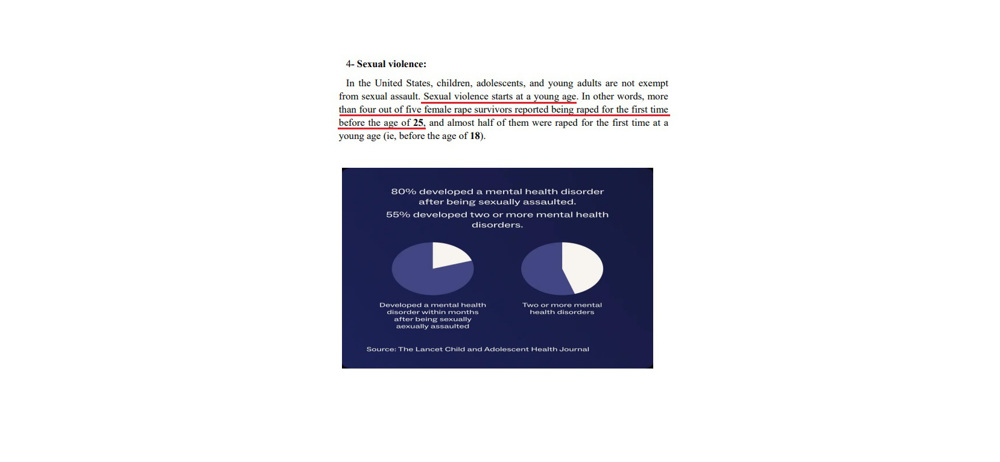
American police violence
The report also underscores the disturbing frequency of police brutality against US citizens, with a particular emphasis on the disproportionate violence endured by Black Americans.
In 2024, reports revealed that US police caused bloodshed on all but 10 days.
Black Americans are three times more likely to be killed by police than white citizens. Data from Mapping Police Violence reveals that US police have killed 234 Black individuals in 2024, marking a significant increase compared to the same period last year.
“American police violence mirrors military aggression abroad,” the foreign ministry’s report said.
Poverty, discrimination and inequality
The report reveals a stark reality in America: a rapidly widening wealth gap that has dire consequences for the nation’s most vulnerable populations.
As this divide grows, low-income communities are increasingly burdened by poor living conditions, skyrocketing homelessness, an intensifying drug abuse crisis, and a troubling decrease in overall life expectancy.
Poverty rates among Black, Latino, and Native American families are more than twice that of white families, according to the report, citing documents.
In his 2023 book, “Poverty in the United States,” Princeton University sociologist Matthew Desmond highlights that despite the nation’s wealth, one in nine individuals and one in eight children are officially categorized as living in poverty.
The American Poverty Institute attributes rising poverty levels to factors such as unemployment, low wages, expensive education and healthcare, high rent, and inflation. These issues contribute to persistent poverty traps for many families.
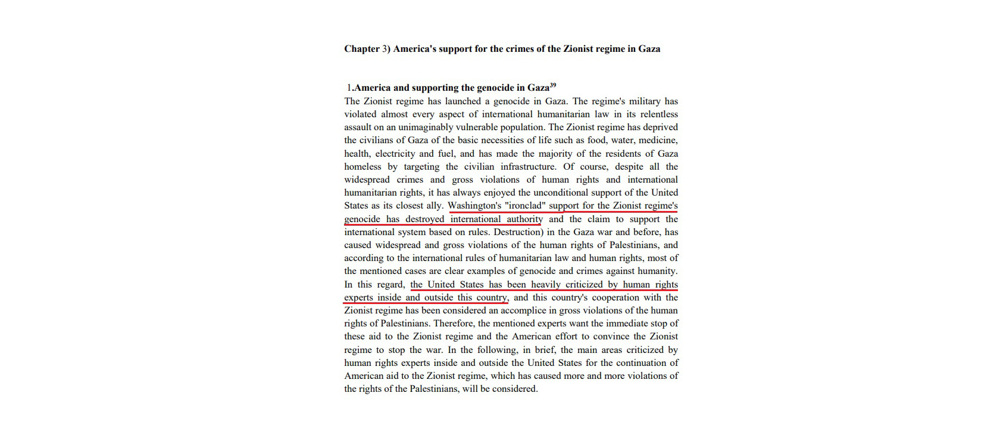
Violation of prisoners’ rights in US
Racial discrimination in American prisons, particularly against Black and Muslim inmates, demands urgent attention, the ministry report warns.
In Louisiana’s Angola prison, over 75 percent of inmates are Black, with conditions likened to slavery.
New York prisons face criticism for religious discrimination against Muslim inmates, notably at Utica prison. Denial of access to the Quran, halal food, and harassment violate their basic rights. Similar issues plague Rikers Island and Thompson prisons.
US prisons face other significant human rights issues, including overcrowding, poor sanitation, violations of immigrant rights in detention centers, solitary confinement, and political imprisonment.
Inmates often experience physical violence, inadequate medical care, and abuse. Women, particularly minority and pregnant women, face additional risks such as sexual violence and neglect.
Children and adolescents in the prison system are vulnerable to violence and abuse, with many held in adult facilities. Disabled prisoners also encounter challenges accessing specialized care and essential assistive devices.
Children’s rights violations in US
According to the ministry report, children’s rights violations persist in the US, including gun violence and child labor, which have assumed alarming proportions.
The US has not ratified the International Convention on the Rights of the Child, perpetuating issues exacerbated by racial and gender disparities.
School shootings are a critical concern, disproportionately affecting Black students, with thousands of children killed or injured annually. In 2024, 11,598 people died from gun violence, including 975 children and teenagers.
Underage workers face exploitation, particularly migrant children who often engage in hazardous jobs. Child labor violations have surged by 88% in the past five years, with children working in dangerous conditions for meager wages.
Violation of women’s rights
The report emphasizes the unique challenges faced by Indigenous women in the US, who are disproportionately affected by both gender and racial discrimination.
These women often encounter numerous obstacles, including a heightened risk of sexual violence, pervasive poverty, inadequate healthcare access, and systemic bias within the justice system.
Women from racial and ethnic minorities in the US, including Black, Latina, and Asian women, encounter significant challenges due to their intersecting identities.
They also experience a wider wage gap and hiring and promotion discrimination.
Systemic racism, entrenched in various social institutions, coupled with the legacy of colonialism and historical discrimination, underlies these inequalities, according to the report.
Domestic violence in the US is also a pervasive issue disproportionately affecting women, with over 12 million annual victims of partner violence or sexual assault.
The presence of firearms exacerbates the risk, as women are 28 times more likely to be murdered by a firearm compared to women in other high-income countries.
The impact extends to children, who often witness abuse and face an increased likelihood of continuing the cycle of violence. Factors contributing to domestic violence include alcohol and drug use and economic pressures.
Sexual violence is a significant issue in the US, affecting individuals at a young age. Over 80 percent of female rape survivors experience their first assault before 25, with nearly half occurring before 18.
The situation of incarcerated women in the US is also a pressing human rights concern, with a significant increase in population over the past decades.
Factors contributing to this growth include poverty, economic inequality, systemic discrimination, and the criminal justice system’s rigid structure.
Women in prisons face unique challenges, such as gender discrimination, inadequate healthcare, and high risks of sexual violence.
Racial discrimination in US
Racial discrimination remains a pervasive issue in the US, the report said, citing the White House’s report and the investigation by Special Rapporteur on Contemporary Forms of Racism, Racial Discrimination, Xenophobia and Related Intolerance.
Systemic racism, stemming from America’s history of slavery and colonialism, affects various racial groups, particularly African Americans.
This deep-rooted problem extends to indigenous people, Hispanics, immigrants, Asians, Jewish communities, Muslims, and Arabs.
Violation of freedom of speech, peaceful assembly
The suppression of student protests on university campuses supporting Palestine reveals the United States’ true nature regarding freedom of speech, the report said.
Campuses across the US have since October last year faced various repressive measures when opposing foreign wars, notably the Gaza war, with political pressure on universities intensifying.
These protests have been widespread, spanning many universities and professors, thus questioning the extent of academic freedom in the country.
The termination of Hassan Jaber, a Palestinian-American midwife, exemplifies the intolerance towards expressing sympathy with Gazan mothers and raises concerns about America being seen as a negative model for academic independence.
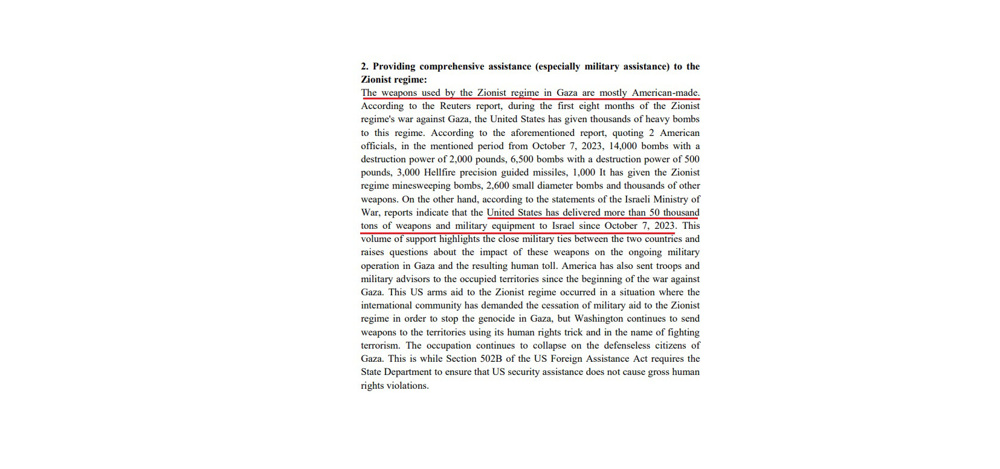
US human rights abuses on global stage
The United States’ extensive use of unilateral sanctions against numerous countries raises significant concerns for human rights violations and international law, the report underlines.
These sanctions, often implemented without UN authorization or legal exemptions, aim to pressure governments into policy changes, resulting in severe consequences for the affected populations in countries like Iran, Syria, Russia, North Korea, Belarus, Venezuela, Cuba, Zimbabwe, Nicaragua, etc.
The impact extends to essential human rights, such as the right to health, food, education, and a healthy environment, with clear violations of the right to access medicine.
UN reports corroborate these findings, underscoring the need for a critical reevaluation of US sanctions to protect vulnerable communities and uphold international human rights standards.
The report also highlights several critical concerns regarding US actions in relation to the ongoing Israeli genocide in the Gaza Strip, where the death toll has crossed 45,000 since October last year.
US support for Israel’s military aggression against Gaza, including the provision of destructive weaponry, has contributed to a humanitarian crisis in the region.
Diplomatic and international support extended by the US to Israel in the United Nations system has also shielded it from accountability for human rights violations.
The US has been uncooperative in implementing decisions made by the International Court of Justice, particularly those suggesting that Israel’s actions in Gaza constitute genocide.
Moreover, America’s role in exacerbating the Gaza famine is a troubling consequence of its policies, the report added.
The US has disregarded warnings from UN human rights officials to cease political support and aid to Israel, demonstrating a lack of commitment to resolving the conflict and promoting human rights.
US media coverage of the conflict is often biased in favor of the Israeli perspective, further distorting the public understanding of the ongoing crisis, the report concluded.
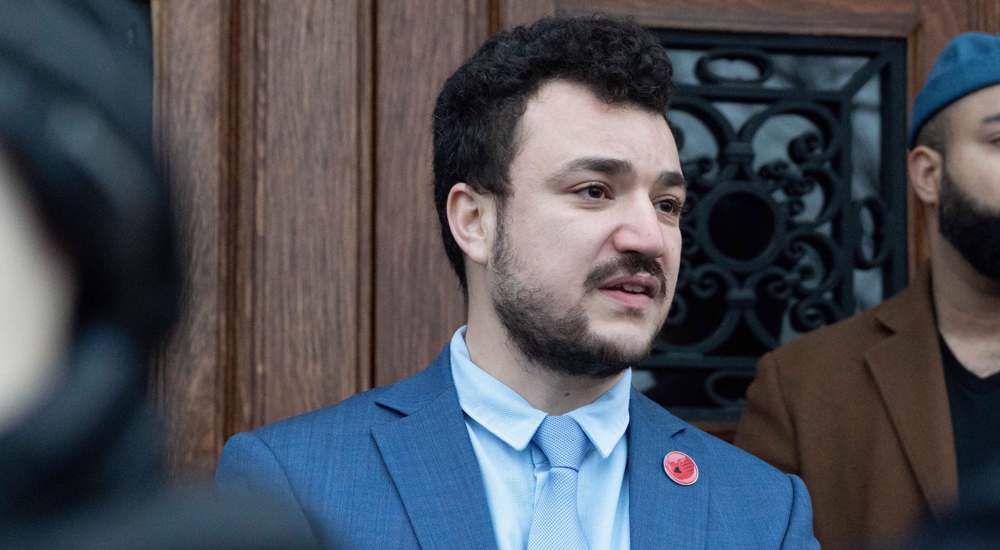
Columbia University laid groundwork for my abduction: Detained student
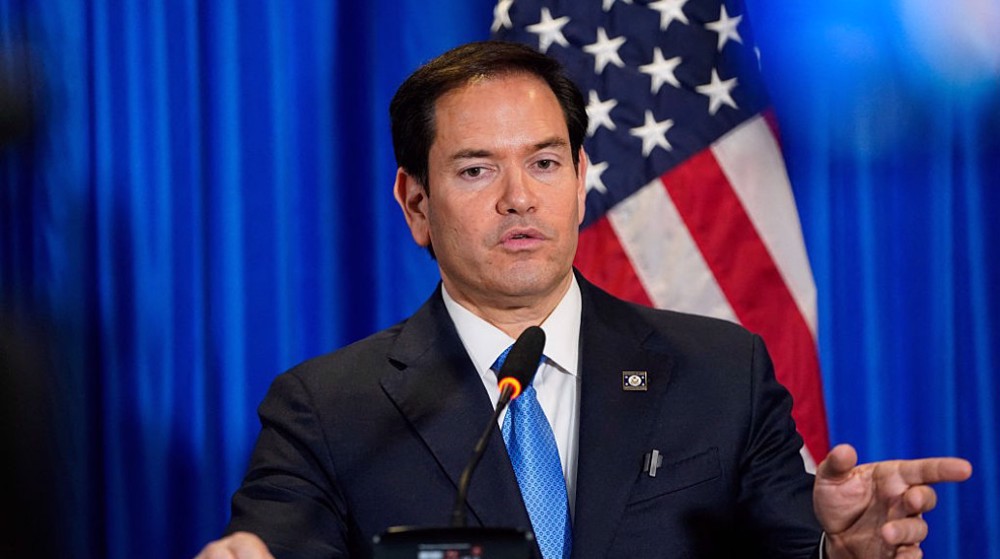
US orders social media screening for student visa applicants to bar those critical of Israel
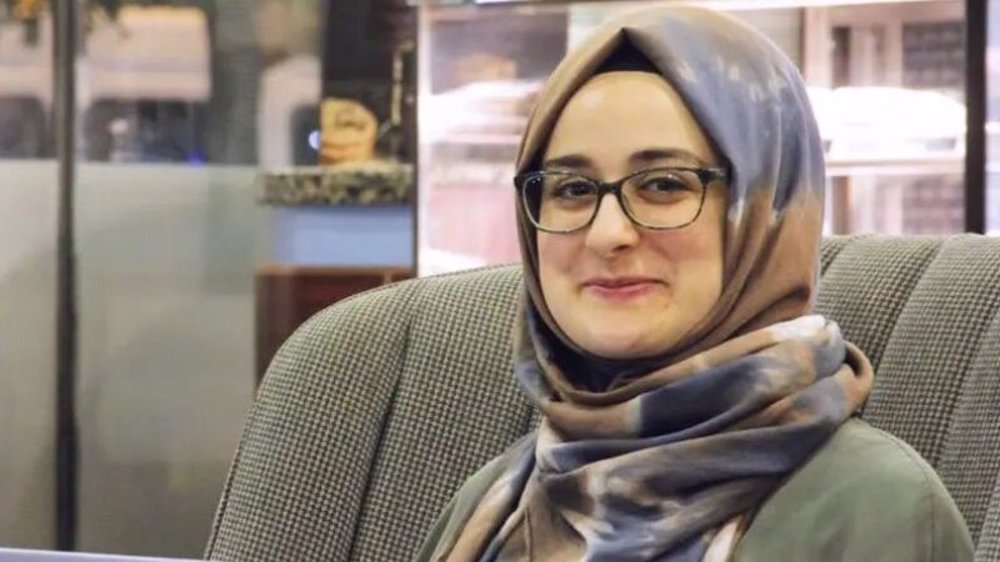
US detains pro-Palestine university student after revoking her visa
US launches more airstrikes on various areas across Yemen
VIDEO | Press TV's news headlines
VIDEO | Parisians hold rally in support of Palestinians
Nigerian security agents plan fresh attacks on followers of Sheikh Zakzaky in Abuja: Report
Bill to seize mosques in India gains presidential assent
Over 600,000 children in Gaza at risk of ‘permanent paralysis’: Ministry
VIDEO | US, Europe anti-Trump protests
Yemen accuses US of targeting civilians in Eid airstrike


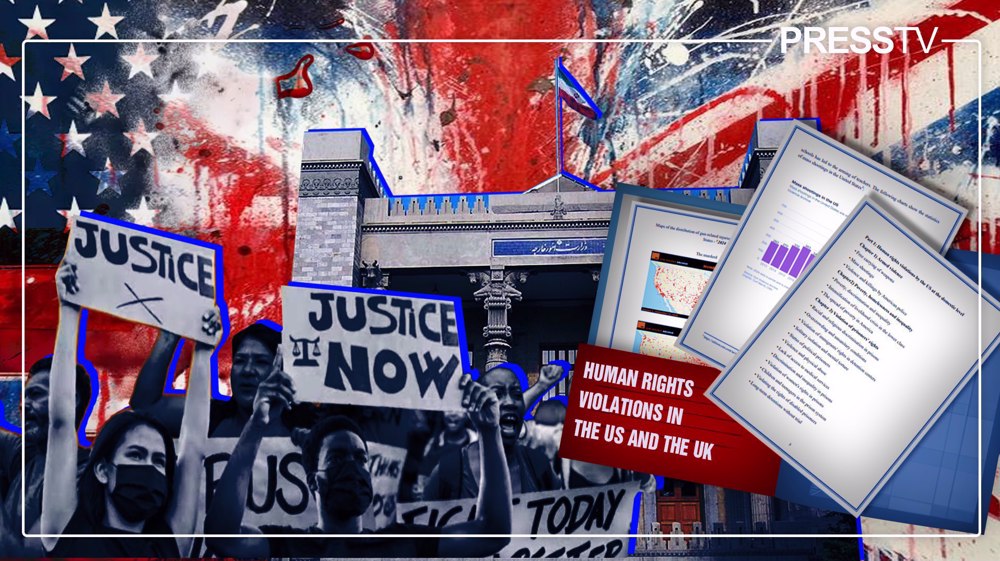



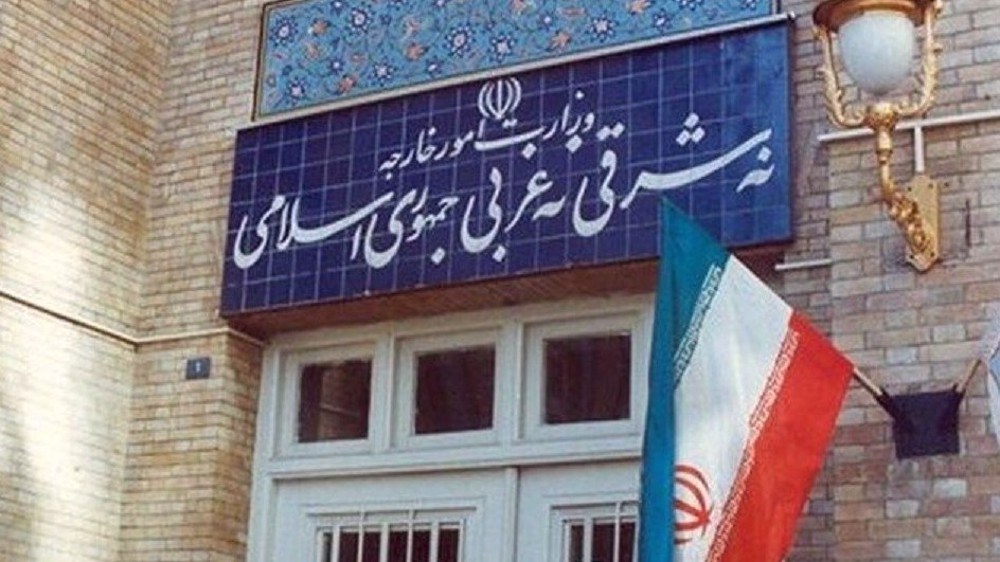
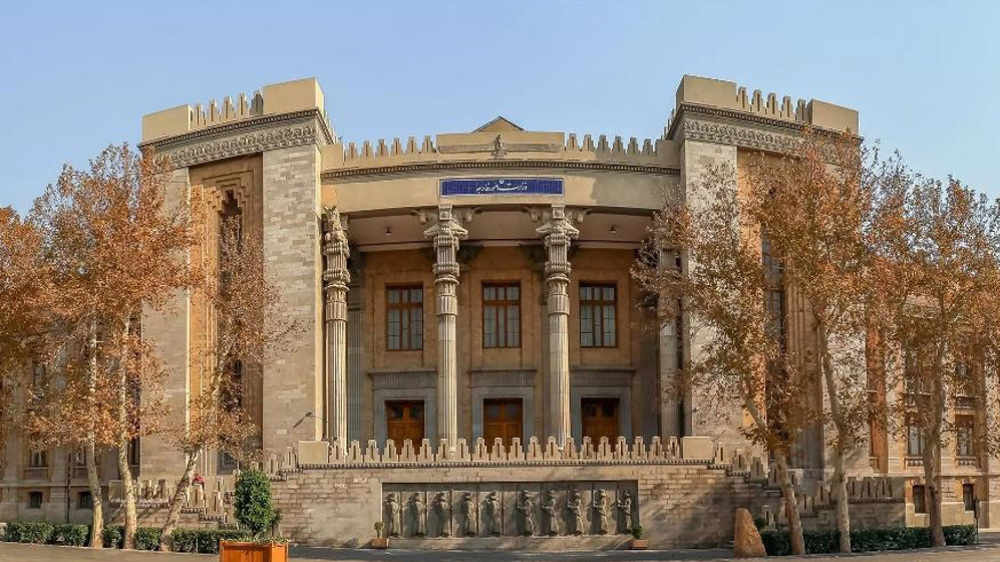
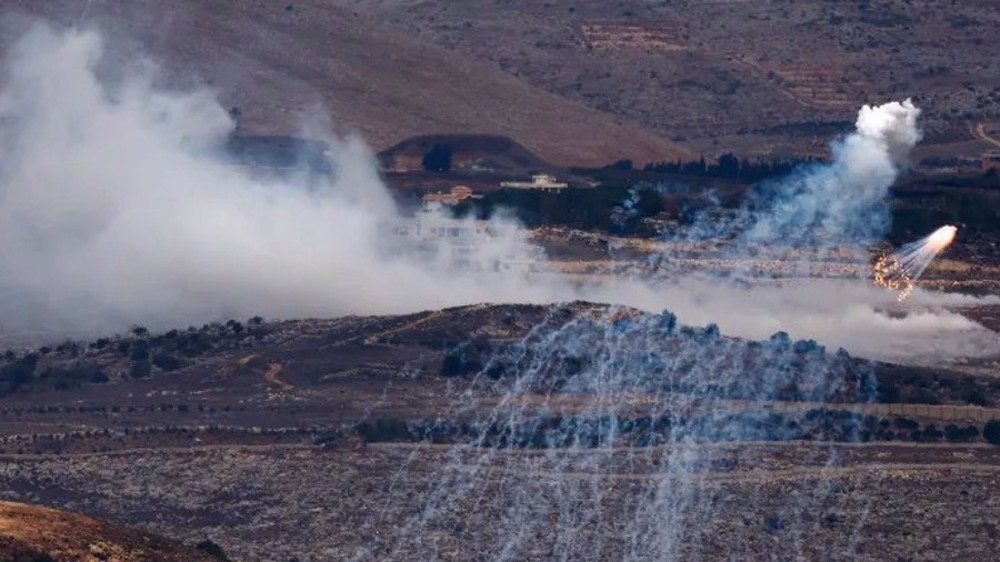
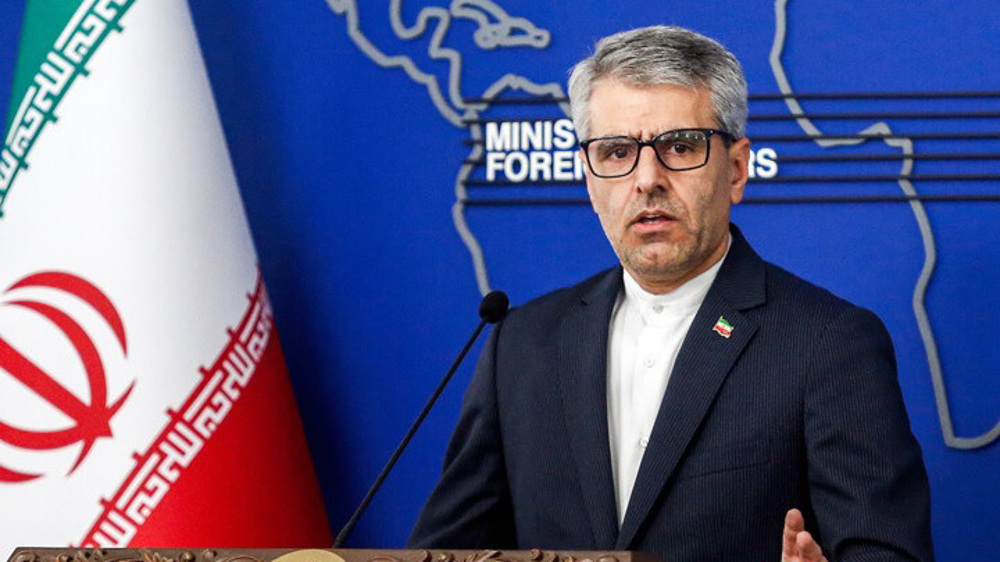


 This makes it easy to access the Press TV website
This makes it easy to access the Press TV website